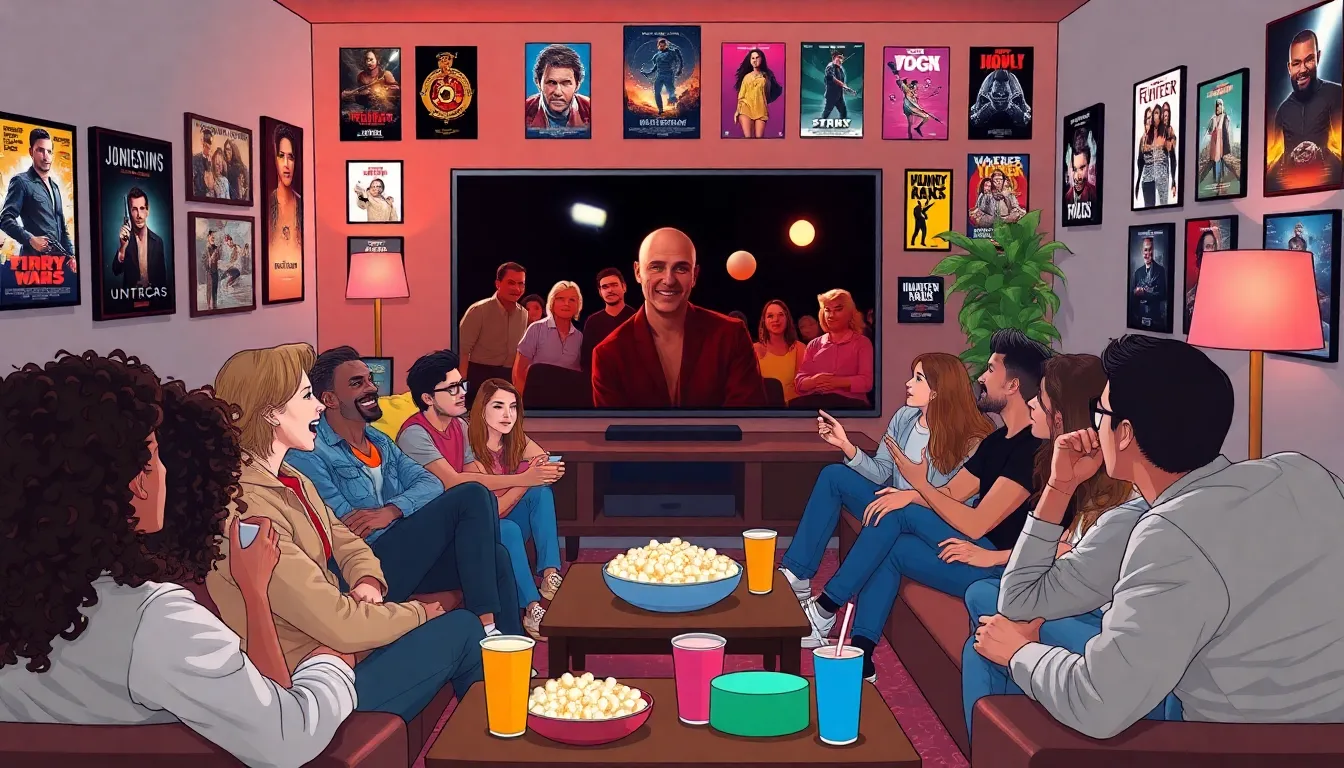Physical Address
304 North Cardinal St.
Dorchester Center, MA 02124

In a world where trends can spread faster than a cat video going viral, mass culture reigns supreme. It’s the collective heartbeat of society, shaping tastes, beliefs, and even the way people dress. From blockbuster movies to chart-topping hits, mass culture is the glue that binds us—whether we like it or not.
Mass culture refers to shared practices, beliefs, and products that are widely disseminated across society. This phenomenon shapes collective identity and influences individual preferences.
Mass culture possesses key traits that distinguish it from other cultural forms. It emphasizes accessibility, making entertainment options available to large audiences. Additionally, mass culture promotes uniformity in tastes and interests, evident in hit films and chart-topping songs. Another characteristic lies in its commercial nature, where profit motives often drive production and distribution. Finally, mass culture fosters a sense of belonging, as shared experiences in media help connect diverse individuals.
Mass culture has roots in technological advancements and social changes. The advent of the printing press in the 15th century laid groundwork for widespread literacy. In the 20th century, radio and television further accelerated mass culture’s reach, creating common experiences for audiences. Globalization contributed significantly by enabling cultural exchange across borders. Today, digital media amplifies mass culture’s impact, creating both global phenomena and localized adaptations.

Media significantly influences mass culture, shaping individual experiences and collective identities. Various forms of media, such as television and film, create shared narratives that resonate across diverse audiences.
Television and film serve as powerful vehicles for mass culture. Popular shows and blockbuster movies become cultural touchstones, uniting viewers around common themes and characters. Characters in these productions often embody societal ideals, reinforcing popular beliefs and aspirations. Moreover, shared viewing experiences provide a sense of community, allowing people to engage in conversations based on familiar plots and trending topics. Ratings and box office numbers reflect audience preferences, indicating how media shapes collective interests.
Music plays a crucial role in defining mass culture trends. Chart-topping songs connect listeners, generating widespread appeal that transcends individual tastes. Genres frequently reflect societal changes, embodying collective emotions and experiences. Additionally, music festivals and concerts foster communal experiences, drawing fans together to celebrate shared passions. Streaming platforms amplify accessibility, enabling discovery of new artists and styles, which further influences popular trends. Mass culture, thus, thrives on music’s ability to unite people through rhythm and message.
Mass culture significantly influences social dynamics by reshaping identity and societal values.
Mass culture affects individual identity and societal values. Shared entertainment forms, like popular television shows and movies, impact how individuals perceive themselves and others. Cultures often adopt certain trends from mass media, leading people to align their behaviors and beliefs with what they see onscreen. Protagonists in leading films provide relatable narratives that shape personal experiences. Additionally, mass culture fosters connections among diverse groups, creating common ground and collective identity. These shared experiences encourage empathy and understanding among viewers, bridging gaps between different backgrounds.
Mass culture fuels consumerism through widespread advertisement and brand visibility. Trends seen in popular culture lead to increased demand for specific products, driving individuals to make purchases that reflect their social status. Globalization amplifies this effect, allowing brands to penetrate new markets beyond geographic boundaries. Cultural exchanges, enabled by mass media, create a unified marketplace where global influences impact local customs. Fast fashion and tech gadgets exemplify how consumerism, influenced by mass culture, shapes societies worldwide. Access to digital media ensures individuals stay updated on global trends and products, further entrenching consumer behavior in everyday life.
Critics often highlight significant drawbacks associated with mass culture. Homogenization of culture surfaces as a major concern.
Cultural diversity diminishes under the pervasive influence of mass culture. It promotes a uniformity that stifles local customs and unique traditions. Individuals often find themselves experiencing similar media and products, leading to a lack of distinct cultural expressions. Worldviews converge, resulting in a diminished appreciation for regional differences. Major entertainment channels frequently favor popular formats, overlooking niche content. As a consequence, creativity suffers in favor of marketability. This standardization raises alarms about cultural imperialism, where dominant cultures overshadow lesser-known ones, leading to a monolithic worldview.
Authenticity has become a casualty of mass culture’s commercialization. Unique art forms and genuine expressions often transform into products for mass consumption. This shift creates a disconnect between creators and their audiences. Artists may prioritize commercial success over meaningful content, altering their original vision. The integrity of music and storytelling diminishes when they cater primarily to mass appeal. Fans frequently experience a sense of emptiness, realizing that they consume mere reflections of creativity rather than authentic expressions. Overall, this erosion of authenticity fuels disconnection from original cultural roots and diminishes the richness of human experience.
Mass culture plays a pivotal role in shaping modern society by influencing collective identity and individual preferences. Its ability to unify diverse groups through shared media experiences fosters connections and empathy among people. However the commercialization and homogenization associated with mass culture raise concerns about the loss of cultural diversity and authenticity. As technology and globalization continue to evolve, the impact of mass culture will likely remain a double-edged sword, offering both opportunities for connection and challenges to cultural richness. Understanding this dynamic is essential for navigating the complexities of contemporary cultural landscapes.